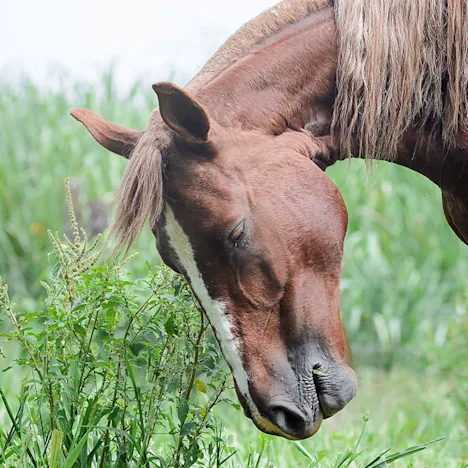Close
Our Products
All Products
Pleasure
Performance
Conditioning
Fibre
Breeding & Stud
Racing
Specialty
Supplements
Quick Feed finder
Free Diet Analysis
The Complete Range
Nutrition Centre
Articles
All About Fibre
Feeding for Condition
Competition Season
Laminitis
Breeding
Foal care
Building Topline
Gut Health
Senior horses
Racing & Breeding
Feeding in a Drought
Tools & Calculators
Competitions / Offers
Our Riders
Brand ambassadors
Junior Squad
About Barastoc
Why Barastoc
Our commitment
Barastoc's People
Our communities
Partnering with KER
Partnering with BHF
Sustainability
Find a Stockist
Contact Us

Preventing Choke in Horses
Choke or oesophageal obstruction is a hugely distressing situation in horses. Choke can occur when a horse consumes its food too rapidly, tries to swallow food without chewing it, has reduced or impaired salivation, cannot properly chew its feed because of dental issues and when eating food items that are large like carrots or hay cubes. Horses eating pelleted feeds experience higher incidents of choke as they can eat large amounts quickly.
How can I prevent choke?
Slow down feed consumption. The slower your horse eats the less likely he will experience choke. Try using a flat, shallow feed tub on the ground to slow down the horse. Smooth rocks or salt blocks can be added to the feeder and deter a horse from getting too much feed at a time as well.
Schedule regular dental exams. Removing sharp points on dental ridges will help the horse to properly chew their feed and prevent choke.
Soak it. Beet pulp should be soaked prior to feeding.
Keep it small. Horse treats, hay cubes and carrots should be no larger than the size of a thumb.
Feed on the ground. Eating from a raised feeder results in improperly chewed food, improper tooth wear, decreased saliva, increased incidence of choke, and respiratory issues from more inspired dust and mould in hay and grain.
My horse choked now what?
Soak all feed and hay for several weeks after the incident has occurred to prevent further choking episodes and irritation of the area. Pelleted high-fibre horse feeds, Barastoc Fibre-Beet Mash, Speedi-Beet and chaff soaked with enough water to form a mash is recommended for feeding horses that are recovering from choke.